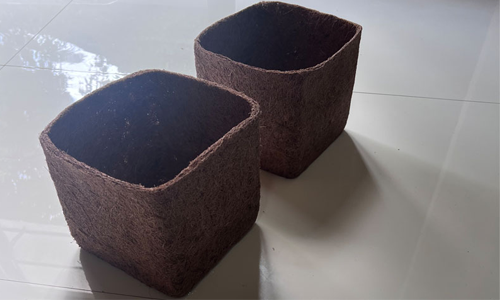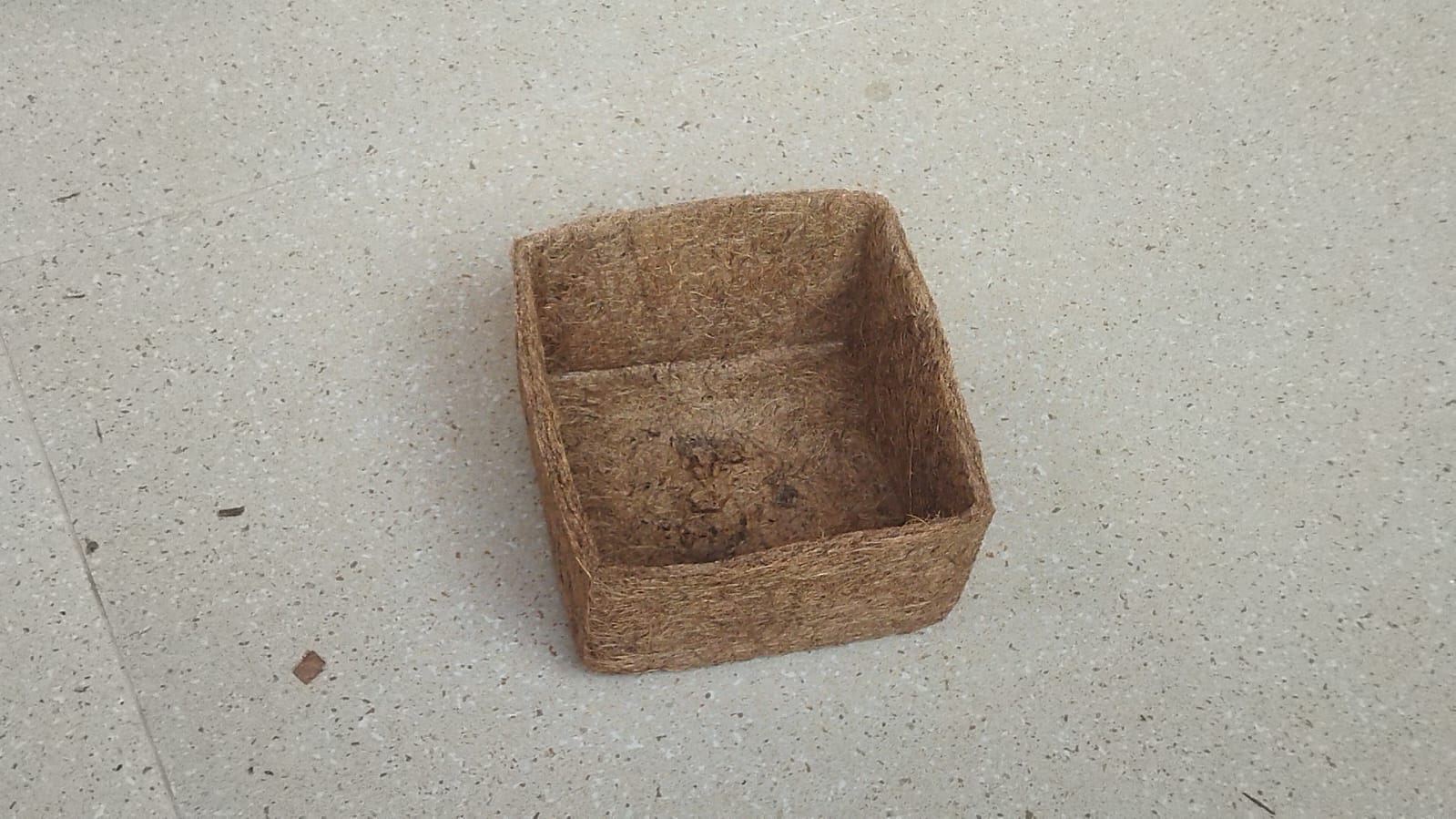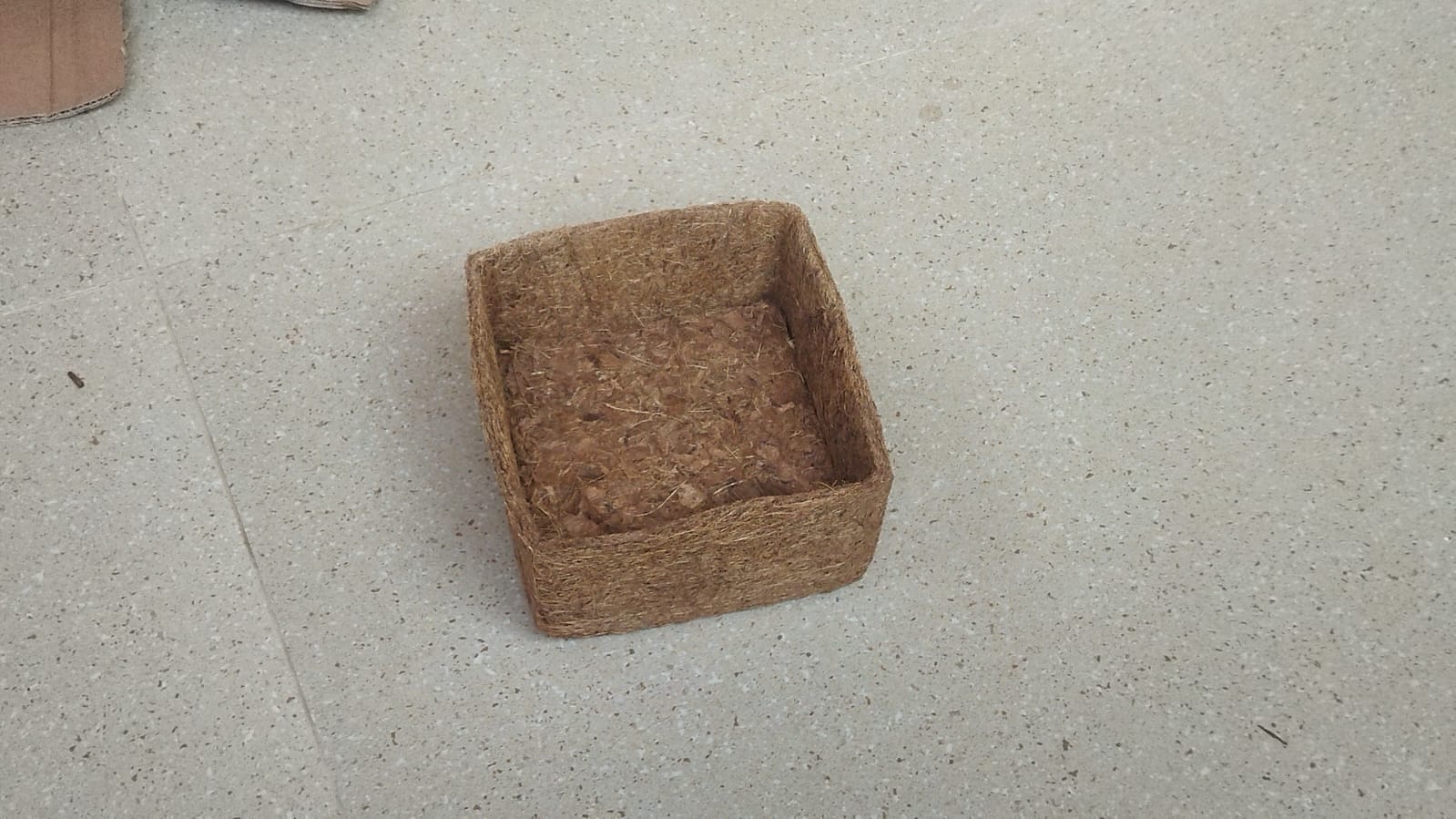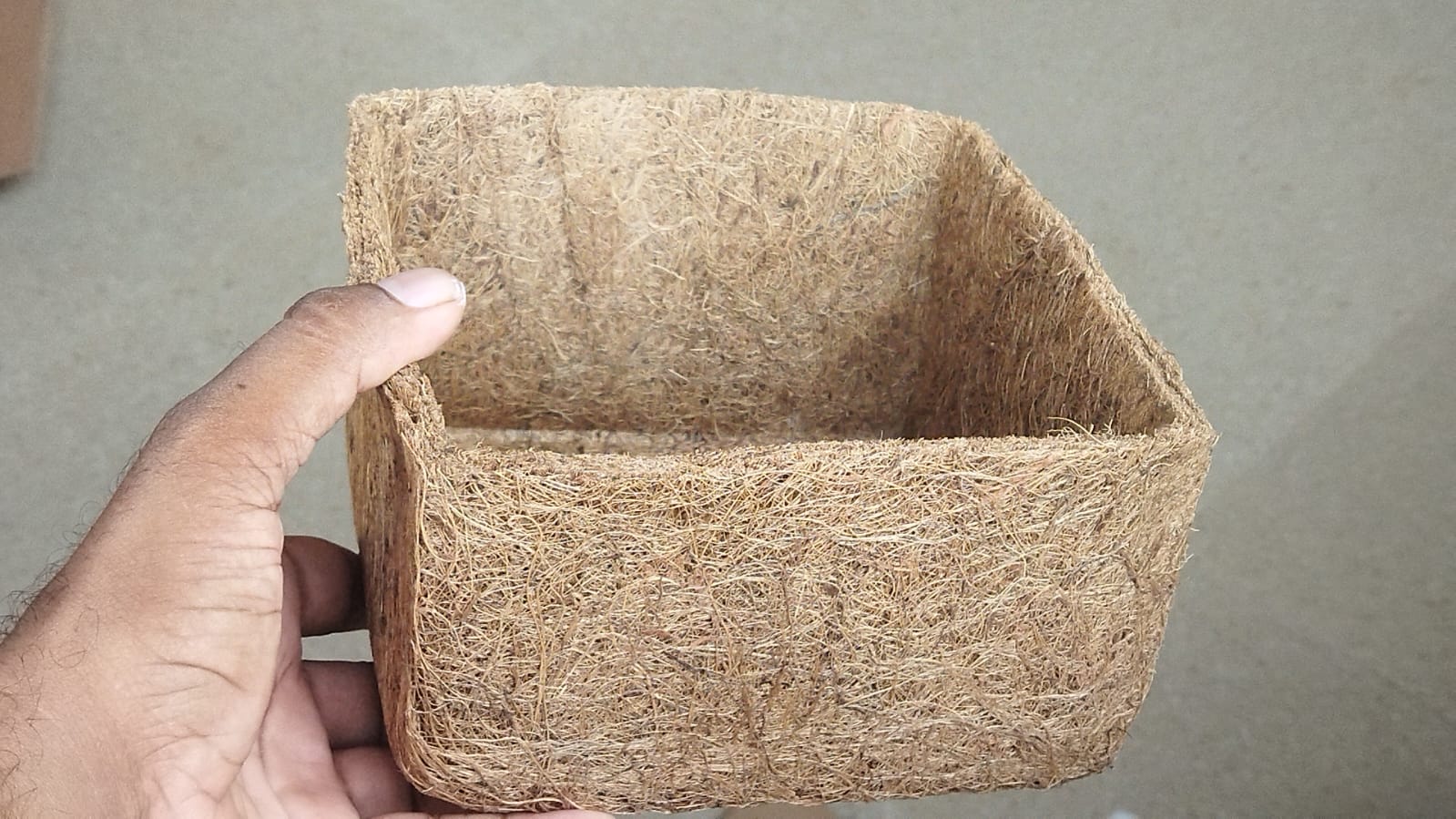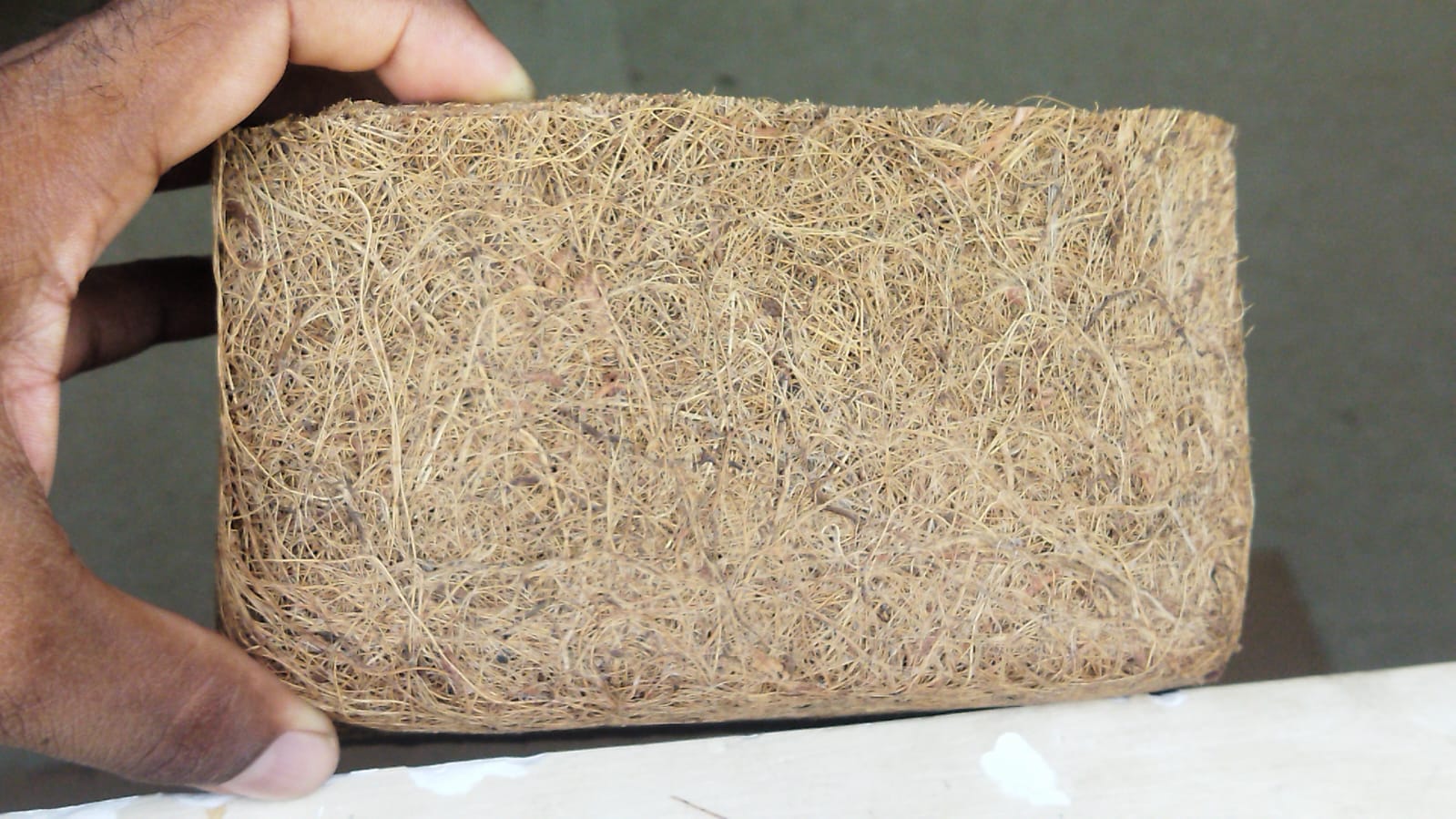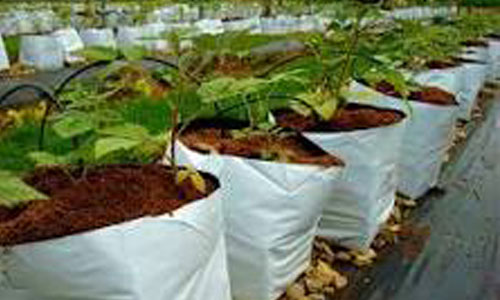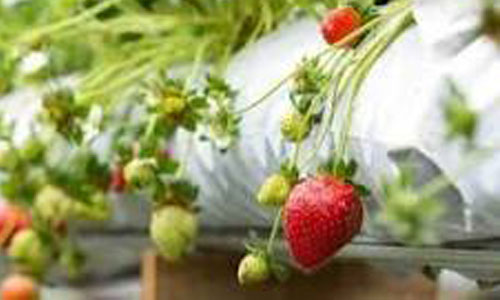Non Woven Coir Fabric Bags
Non-woven coconut coir fabric bags are another innovative product made from coconut husk fibers. These bags are widely used in horticulture, agriculture, and landscaping, particularly as biodegradable plant grow bags.
Key Features
Biodegradable: Made from natural coconut fibers, these bags are eco-friendly and fully biodegradable, reducing the environmental impact compared to synthetic alternatives.
Durability: The non-woven fabric provides strength and durability, capable of withstanding various environmental conditions while maintaining integrity until plants are well-established.
Water Retention and Drainage: Coconut coir naturally retains moisture while allowing excess water to drain, promoting healthy root growth and preventing waterlogging.
Aeration: The fabric allows for good air circulation around the roots, which is crucial for healthy plant development.
PH Balance: Like other coconut coir products, these bags have a near-neutral pH, suitable for a variety of plants.
Lightweight and Easy to Handle: These bags are lightweight, making them easy to transport and handle during planting and transplanting.
Benifits
Environmentally Sustainable: Being made from a renewable resource and biodegradable, these bags align with sustainable agricultural practices.
Root Health: The material promotes excellent root health by providing a balanced environment with proper water retention and aeration.
Versatile Use: Suitable for a wide range of plants, including vegetables, flowers, and trees. Uses:
Grow Bags: These bags are often used as grow bags for planting saplings, vegetables, and other crops. They are particularly popular in organic farming and urban gardening.
Erosion Control: In landscaping and civil engineering, non-woven coir fabric bags are used to stabilize soil, prevent erosion, and support plant growth in difficult terrains like slopes or riverbanks.
Nurseries: Used in nurseries for seed germination, sapling growth, and as a medium for transplanting.
Reforestation Projects: These bags are used in reforestation and afforestation efforts to support the growth of new plants in areas where soil conditions are challenging.

